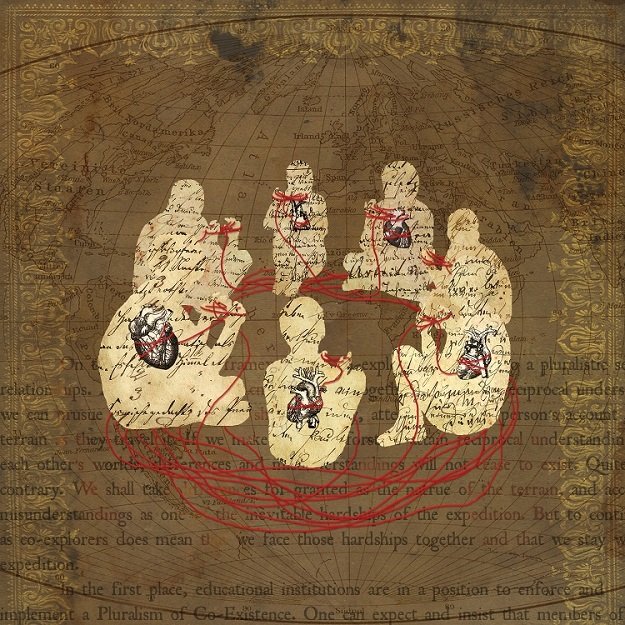Generally,institutes can not do what they have to do for individual morality, but they can compensate for their absence. Good institutes ease the lives of good people. Some institutes are obliged to capture and compensate for the wrong moral behavior of people, such as the church. Others require a device that excludes abuse. Therefore, in the institutions, the ethical program of the state is reflected. Democracy needs more institutes than dictatorship.
Justice - this is a qualitative feature of society as a whole. Therefore, the concept of social justice is not fair enough - justice is always social. The issue of justice is central to social ethics. The main historical predecessors were Plato, Aristotle, Marx. In traditional philosophy, there are two opposite approaches to the problem: justice as equality and equity as inequality. The idea of justice as equality is professed by Christianity and developed as a social-moral doctrine in the modern times and Marx. The idea of justice as an inequality has been defended by philosophers like Confucius Plato, Aristotle. Equity as equality is present in the moral practice of primitive societies through customs. For example, forgiveness in the sense of eye for eye, tooth for tooth. Christianity preaches the same idea.
The idea of justice as a paradigm is revived by Marx in the New Age and becomes popular among the masses in many countries. Marx's strong side is his critique of social injustice and the exploitation of hired workers. This positive part is poorly developed. This theoretical disadvantage is manifested in the unsuccessful attempt to practice Marx theory. The comparative concept of justice has been a gross injustice towards highly educated people, the intelligentsia, and others. Justice towards the poor has become violence and terror towards all classes. The system of privileges developed based on a political past, origin, place in power. Equality can not be an end in itself, even more when it is achieved by sharing equally with public wealth. It is then that equality in poverty is produced. Obviously, the idea of equity as equality is unrealistic. At the same time, the concept of justice becomes part of the social ideal of Marxism and is one of the strong humanistic aspects of his theory.
What is justice like inequality?
Confucius says: "There can be no equality between a father and a son, between a man and a woman, between the senior and the junior. The task of the master, when he manages the manor, is to appoint anyone in such a position to match the degree of his nobility. " In the ideal state of Plato there is a double selection: genetic and social. Justice is a state of society in which "everyone deals with their affairs." To achieve this is to define and develop the corresponding abilities of each person. For free Greeks, there can be no equality between the master and the slave. So Aristotle speaks of two kinds of justice: equality for equal (equitable justice) and unequal (distributive justice).While society has not set up special human rights observatories, it is unfair. Social justice is based on the existence of principles on which the basic structure (distribution of the collective public wealth, power) and the institutes that follow their observance are based.

Ethics should be ontologized in order to gain some solid ground. That way, actualization in particular cultures will not be a problem.
Downvoting a post can decrease pending rewards and make it less visible. Common reasons:
Submit